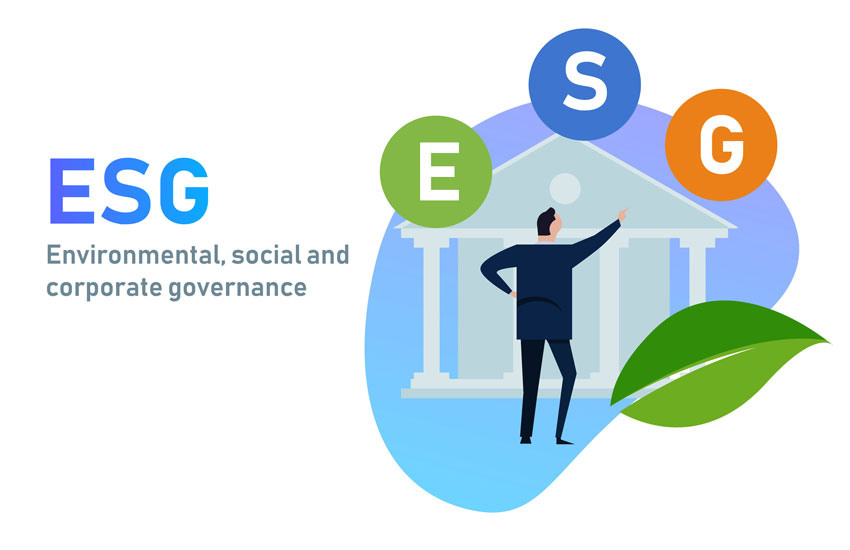Thailand’s State run Government Savings Bank (GSB) has begun to employ environmental, social, and governance (ESG) scores when considering loans to large firms with a credit ceiling of 500 million baht or more.
According to President and Chief Executive Vitai Ratanakorn, GSB will be the first bank to consider ESG scores when lending to large corporate customers. This project seeks to assist enterprises that have a good impact on the economy, society, and the environment.
Large corporations will be questioned about how their operations contribute to environmental, social, and governance norms, as well as any negative news.
The total score is 10, and a score of fewer than 2 points indicates loan refusal. A score of 8 points or higher, on the other hand, will result in loan acceptance and loan rates reduced by 0.10-0.20%.
“While businesses with less than 2 points will not be eligible for loan approval, the bank is ready to work with those businesses to help them improve their operations in order to achieve higher ESG scores,” Mr. Vitai said.
In terms of retail clients, which are regarded the most important customer category, Mr. Vitai stated that the bank used a portion of its income from major corporations to subsidize interest for unserved retail customer categories and disadvantaged groups.
Over the last three years, the bank has decreased interest rates, undertaken debt moratoriums and debt restructuring measures, and made direct payments totaling more than 55.4 billion baht through corporate social responsibility (CSR) operations.
He stated that the bank’s operations should have a visible impact on society. For example, the bank offers auto title loans at cheap interest rates, often 8-10% lower than the market, allowing low-income clients to obtain loans by using motorcycles as collateral.
1.8 million customers received auto title loans from the bank in the recent past.
Mr Vitai also stated that by the end of this year, the bank will establish a subsidiary named Ngern Dee Dee with a registered capital of 500 million baht to lend to unsecured and high-risk retail customers.
The interest rate is set at 3-5% cheaper than the market, with a borrowing limit ranging from 10,000 to 100,000 baht per borrower.
This loan will be available through the bank’s digital lending app at the start of next year.
The bank had outstanding loans of 2.35 trillion baht at the end of the second quarter, up 57.4 billion baht from the end of last year, deposits of 2.68 trillion baht, up 3.6 billion baht, a net profit of 17.3 billion baht, and non-performing loans (NPLs) of 2.63% of outstanding loans.
The bank established a goal of keeping NPLs under 2.95% for the entire year. ESG is a practical strategy to doing business that prioritizes sustainability over financial gains.
Environmental, social, and governance issues are considered by socially conscious investors when evaluating organisations and screening new investments.
Environmental criteria take into account how a corporation protects the environment, such as corporate policies that address climate change, carbon emissions, pollution, energy use, and biodiversity.
Human rights, adherence to occupational safety and health regulations, and relationships with employees, suppliers, consumers, and communities are all examples of social criteria.
Corporate governance emphasises corporate transparency, internal system control and audits, and strict adherence to laws and regulations.
The ESG idea helps organisations gain credibility by reflecting a company’s dedication to environmental, social, and governance norms and criteria.
Many publicly traded companies utilise ESG data to create sustainability reports that are distributed to shareholders, investors, and the general public alongside financial reports.
ESG-compliant organisations account for around 80% of institutional investors’ investment portfolios.
Environmental, Social, and Governance (ESG) Explained
Environmental, Social, and Governance (ESG) are three key factors that are used to evaluate the sustainability and societal impact of a company or organization. ESG has gained significant importance in the business and investment world as stakeholders increasingly recognize the importance of considering these broader factors in addition to financial performance.
1. Environmental (E):
The environmental aspect of ESG focuses on how a company’s operations impact the natural environment. Key areas of concern include:
– Climate Change: Companies’ greenhouse gas emissions, carbon footprint, and efforts to mitigate climate change through renewable energy, energy efficiency, and carbon reduction initiatives.
– Pollution and Waste: Assessment of a company’s waste management practices, pollution control measures, and adherence to environmental regulations.
– Resource Management: How a company utilizes natural resources, including water, energy, and raw materials, and whether they promote sustainable practices.
– Biodiversity: Consideration of a company’s impact on biodiversity and efforts to protect and preserve natural ecosystems.
2. Social (S):
The social aspect of ESG looks at a company’s impact on society and the well-being of its stakeholders, including:
– Employee Relations: Treatment of employees, fair wages, diversity and inclusion initiatives, and labor practices.
– Human Rights: Respect for human rights across the company’s supply chain and operations.
– Community Engagement: The company’s efforts to positively engage with local communities and contribute to their well-being.
– Customer Satisfaction and Data Privacy: Ensuring that products and services meet customer needs and protecting customer data and privacy.
3. Governance (G):
The governance aspect of ESG refers to how a company is governed and controlled, including:
– Board Composition: The diversity, independence, and expertise of the company’s board of directors.
– Executive Compensation: Ensuring that executive pay is aligned with company performance and shareholder interests.
– Transparency and Accountability: The level of disclosure and transparency in financial reporting, corporate policies, and decision-making processes.
– Anti-Corruption and Ethics: Measures taken to prevent corruption and promote ethical behavior within the organization.
ESG criteria are used by investors, businesses, and other stakeholders to assess a company’s long-term sustainability, risk management practices, and social responsibility. Companies with strong ESG performance are often considered more attractive for investment and may enjoy better long-term financial and reputational outcomes. Similarly, investors and consumers increasingly seek to align their investments and purchasing decisions with their values and concerns related to sustainability and social impact.






